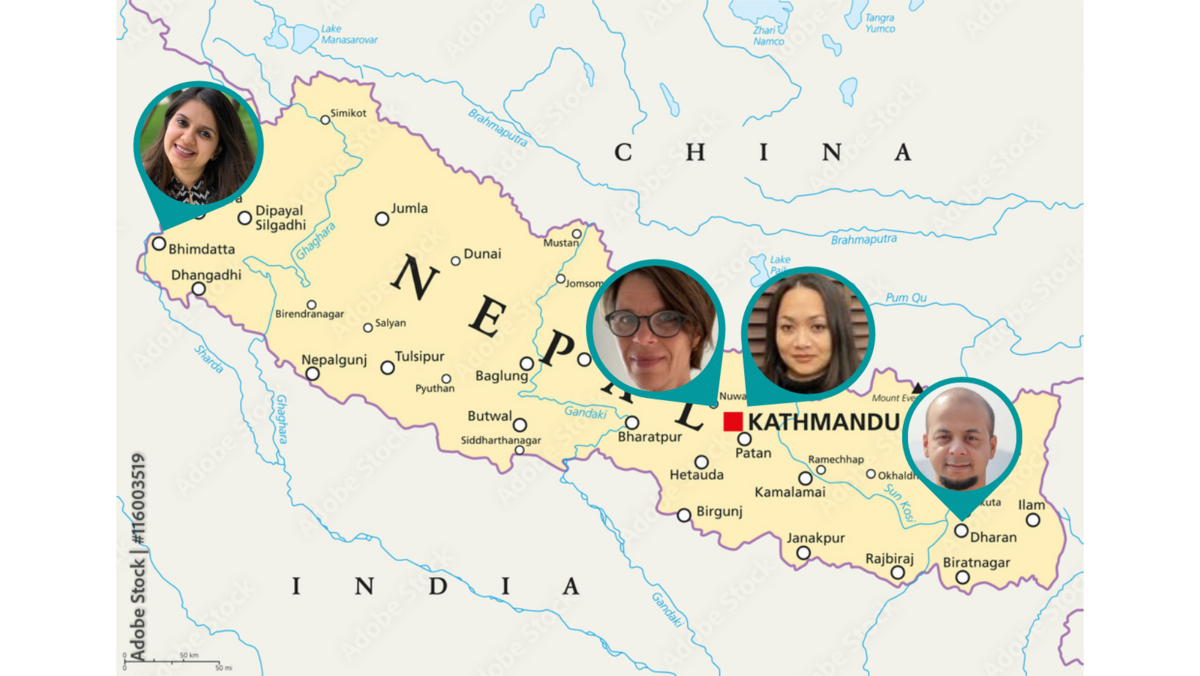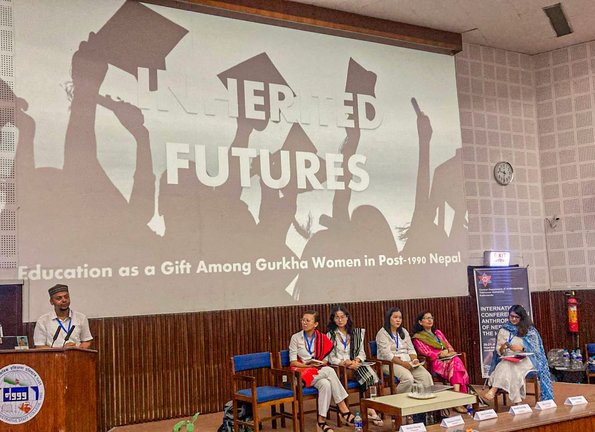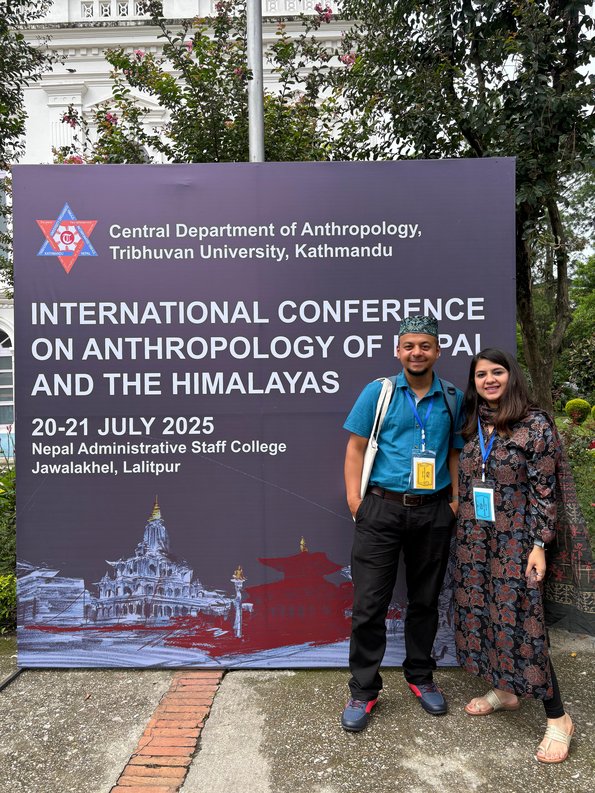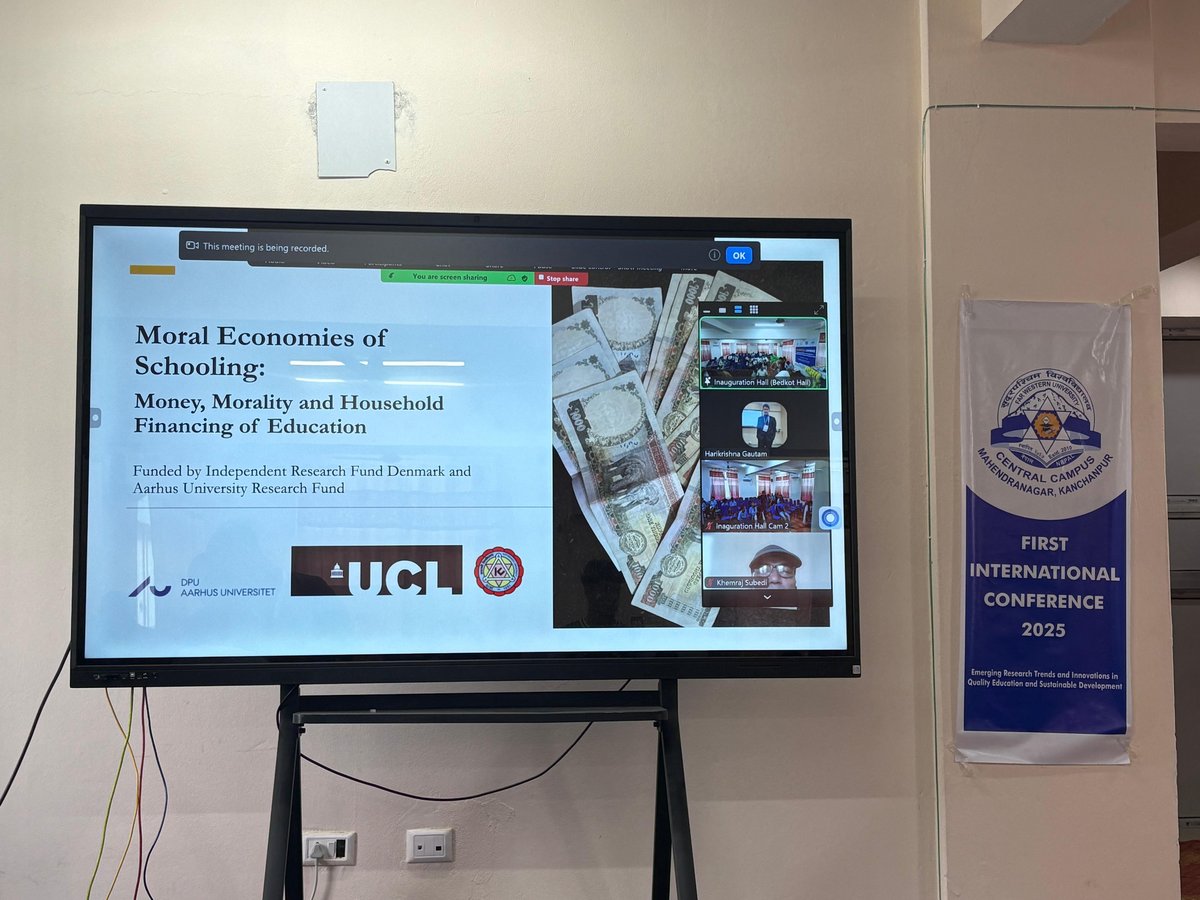Despite widespread ideals of free school education, household financing constitutes an increasingly large share of the funding of formal education globally, especially in low-income countries. Decisions of what and whom to invest in are laden with conflicting expectations of care, responsibility, duty and guilt, turning economic priorities into moral concerns. Grounded in the concept of ‘moral economies of schooling,’ this project investigates the relationship between economic investments, social relations and moral obligations in household financing of education in Nepal.
Sub-study 1 focuses on the aspect of education of the children of former bonded labourers, Kamaiya, in Southern Nepal. Although the Kamaiya system was officially abolished in 2000, former Kamaiyas remain one of the most impoverished and disenfranchised groups in Nepal, reflected in landlessness and low employment.
Researcher: Mohini Gupta; Bhimdatta/Mahendranagar
Sub-study 2 focuses on the education of the children of Gurkhas (Nepali soldiers that join the British or Indian army) in Dharan, which historically was a key base for the British Gurkhas. Becoming a soldier (lahure) is associated with considerable social prestige, leading families to invest enormous amounts of time and money to ensure their children complete their schooling due to the prospect of joining the army and a potential career abroad.
Reseacher: Sanjay Sharma; Dharan
Sub-study 3 focuses on the financing of education by the new elite in a ‘gated community’ in Kathmandu. With Nepal’s rapid urbanisation and domestic migration to the capital city, gated communities provide urban landholding, home ownership and shared infrastructure, catering to new class imaginaries among the growing urban population.
Researcher: Uma Pradhan; Kathmandu
Sub-study 4 focuses on education financing an urban squatter (sukumbasi) settlement in Kathmandu. Coming to Kathmandu 30-40 years ago to improve their livelihood through, among other things, their children’s education, the inhabitants, claiming to be landless, occupied public land.
Researcher: Karen Valentin; Kathmandu
The project runs from January 2024 to August 2027
The research is funded by:
The project is conducted by DPU, Aarhus University, University College London (UCL), and Kathmandu University (KU).



The team is currently doing ethnographic research in Bhimdatta (Mahendranagar), Dharan, and Kathmandu.

Sanjay Sharma presented his research on 'Inherited Futures: Education as a Gift Among Gurkha Women in Post-1990 Nepal' at Tribhuvan University's International Conference on Anthropology of Nepal and the Himalayas, 20-21 July 2025. The presentation was a part of the panel on 'Gendered Identities and Agencies', chaired by Mohini Gupta. The panel brought together four presentations that approached the question of gender and agency through unique perspectives—drawing from diverse regions, communities, and everyday practices across Nepal and India.



Mohini Gupta represented the 'Moral Economies of Schooling' team in Kanchanpur and showcased the project at the first International Conference at Far Western University, Nepal, 26-27 June 2025. The audience engaged with the presentation through thoughtful questions, and the conference presentation led to establishing meaningful connections with academics and students from Far Western University.
The first Stakeholder Consultation was held on 18 May 2025 at Kathmandu University School of Education (KUSOE), Nepal. The Consultation was joined by notable indivduals like Former Education Minister Bidya Bhattarai, Dean of KUSOE Bal Chandra Luitel, and several others, including representatives from Ministry of Education, school headteachers, and representatives from neighbouring municipalities, among others.
Here are the key takeaways from the Consultation:
Education as a shared moral responsibility: Stakeholders emphasised that education continues to be a key priority, as seen in rising household expenditures and the strong value placed on schooling. Investing in children requires financial, emotional, and social commitment from both the state and families. However, there is a growing distrust in public institutions, prompting many parents to choose private or foreign education options. This shift reflects a broader issue of declining collective ownership over education.
Educational decisions are driven by hope, obligation, and inequality: Participants emphasised that families do not invest in education based solely on economic logic. Bidhya Bhattarai, Former Education Minister and Member of Parliament, highlighted that schooling decisions are driven by a mix of hope for a better future, social obligation, and the fear of being left behind. Despite economic hardship, many parents make significant sacrifices to send their children, often selectively, to private schools, believing public schools can no longer ensure upward mobility.
Data gaps obscure true educational realities: Stakeholders highlighted the lack of reliable data on the economies of private schools, including investment, fees, and household-level spending on education. Without capturing hidden costs and parental contributions, policy responses remain incomplete and disconnected from real financial burdens.
Parental involvement is critical but uneven: Parents' roles have shifted from material contributions to financial ones, often without adequate engagement in their children's education. Limited participation and low trust in public schools undermine education quality, underscoring the need for parent-focused programmes and clearer communication between schools and families.
In the third webinar in this series, Associate Professor Gustav Peebles from the University of Stockholm shared an anthropological take on money, credit, and debt.
19 March 2025, Wednesday
2 pm Denmark ♦ 6:45 pm Nepal
In the second webinar in this series, Professor Amy Stambach from the University of Wisconsin-Madison shared a political-economic perspective on the moral obligations of household financing of education.
13 February 2025, Thursday
9 am Washington DC ♦ 3 pm Denmark ♦ 7:45 pm Nepal
In the first webinar in this series, Professor David Gellner from the University of Oxford discussed forms of social stratification in Nepal, focusing on the overlaps and connections between caste, class, and ethnicity.
9 December 2024, Monday
2 pm Denmark ♦ 6:45 pm Nepal
The project has engaged multiple experts in the field of education, anthropology, economics and Nepal studies to enrich and deepen the impact of our work, as well as create a larger network of scholars working in similar fields.
5 August 2025
'The Evolution of Tharu Identity'
Arjun Gunaratne, Professor of Anthropology, Macalester College, USA
11 February 2025
'The Barghar among the Tharus'
Suresh Dhakal, Associate Professor of Anthropology, Tribhuvan University, Nepal
31 January 2025
'Sukumbasi in the City Movement'
Sabin Ninglekhu, Researcher, Social Sciences Baha, Nepal
24 January 2025
'Notes on the Kamaiya Liberation Movement'
Tatsuro Fujikura, Associate Professor, Graduate School of Asian and African Area Studies, Kyoto University, Japan
23 January 2025
'The Broker's Ethic: Land, Ownership and Kinship in Post-Earthquake Kathmandu'
Andrew Haxby, Research Fellow, Max Planck Institute for Social Anthropology, Germany